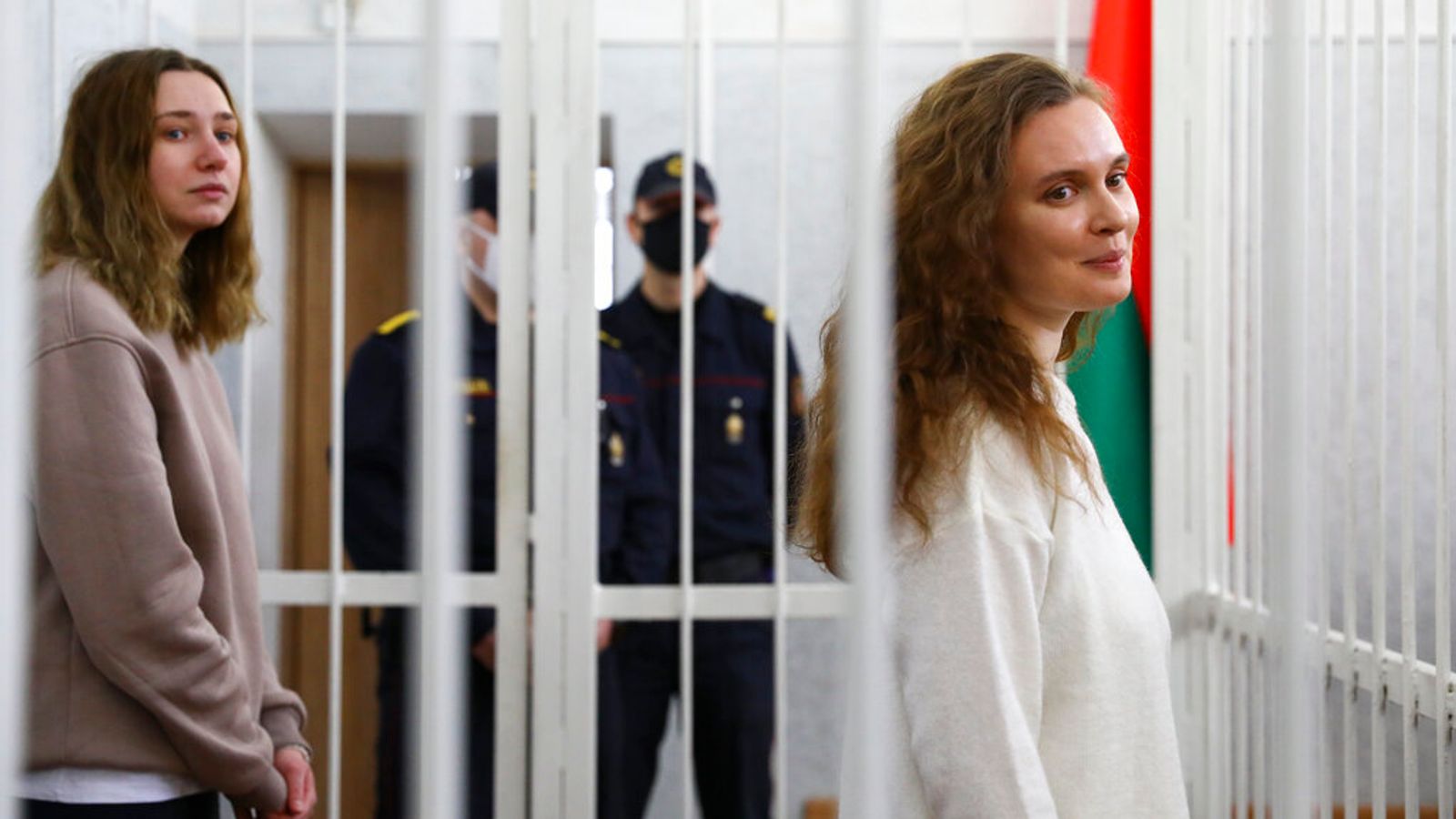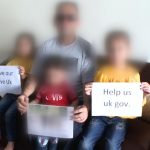Two Belarusian journalists have been sentenced to two years in prison by a court in Minsk for live-streaming a protest.
Katsiaryna Andreyeva, 27 and Darya Chultsova, 23, both work for the Polish-based TV network Belsat.
They had been filming for several hours from the window of a 14th-floor apartment on 15 November last year when riot police broke in and arrested them.
The judge ruled that the women were attempting to coordinate protests and disrupt civil order.
Standing inside a metal cage, the women hugged each other, smiled and made V signs after the verdict was handed down.
“Katya held it together brilliantly,” Ms Andreyeva’s husband, Igor Ilyash, who is also an investigative journalist, told Sky News. “I am proud of my wife for the way she is handling this.”
Mr Ilyash said they were both under no illusions about the court outcome as in recent months judges had repeatedly returned verdicts consistent with the prosecution’s request.
He said his wife had managed to pass him a note through her lawyer in which she wrote that she was not scared of jail.
She told him that she was reading the copy of Alexander Solzhnitzyn’s book In the First Circle, which he had given her, and that she felt that political prisoners in Soviet times had had to go through worse.
Nevertheless, the level of repression against journalists in Belarus has not seen its equivalent in Europe since the Stalinist era.
In the past six months 400 journalists have been detained for covering the protests against Belarus’s despotic leader, Alexander Lukashenko, after he declared himself winner in an August election which was widely decried as fraudulent.
On Tuesday, police carried out 90 raids on the homes and offices of journalists and human rights activists.
Andrei Bastunets, from the Belarusian Association of Journalists, was one of 30 detained but later released. Ten are still in custody.
“This is terror against dissent,” Mr Bastunets said in response to Thursday’s ruling. “What we see now only goes deeper into the darkness. The abyss has no bottom.”
Thursday’s verdict is the first in a string of criminal cases against journalists.
On Friday, Katerina Borisevich, a reporter for the online portal Tut.by, will go on trial for supposedly disclosing medical secrets after an article she wrote contradicted the official version of events around the death of a protester.
Roman Bondarenko died after he was beaten when he went to investigate who was ripping down the red and white flag, symbol of this latest wave of protest, from a neighbourhood courtyard.
The investigative committee ruled that he had been drunk but Ms Borisevich, quoting the emergency medical doctor in charge, said there had been no evidence of intoxication. Both she and the doctor now face criminal charges.
“There is just one word for this and it is terror,” said Aleksy Dzikawicki, Belsat’s deputy director, from Warsaw.
“The regime wants to shut down all independent media because they’re scared of protests later in the spring.
“I think in some ways it does have an impact because no one wants to go to prison but my colleagues will keep on working because Belarusians need independent media now more than ever.”
“This conviction is intended to intimidate the entire profession, to criminalise journalism,” said Mogens Blicher Bjerregard, president of the European Federation of Journalists.
“The repressive drift of dictator Lukashenko’s regime requires a rapid and firm reaction from the international community.
“We once again call on the European Union, the Council of Europe and the OSCE not to be complicit in the regime’s abuses.”






















